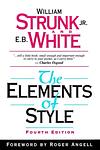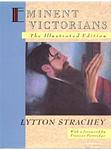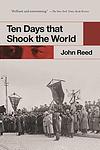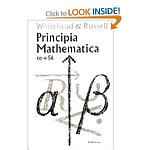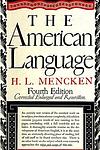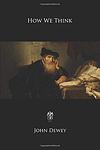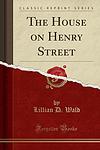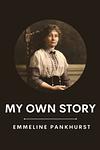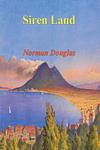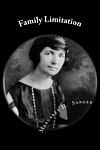The Greatest American, British, German "Nonfiction" Books From 1910 to 1919
Click to learn how this list is calculated.
This list represents a comprehensive and trusted collection of the greatest books. Developed through a specialized algorithm, it brings together 305 'best of' book lists to form a definitive guide to the world's most acclaimed books. For those interested in how these books are chosen, additional details can be found on the rankings page.
Genres
Countries
Date Range
Reading Statistics
Click the button below to see how many of these books you've read!
Download
If you're interested in downloading this list as a CSV file for use in a spreadsheet application, you can easily do so by clicking the button below. Please note that to ensure a manageable file size and faster download, the CSV will include details for only the first 500 books.
Download-
1. The Elements of Style by E. B. White, William Strunk Jr.
This book is a definitive guide and classic manual on the principles of English language read by millions of readers. The 18 main topics are organized under headings such as Elementary Rules of Usage, Elementary Principles of Composition, A Few Matters of Form, Words and Expressions Commonly Misused, and An Approach to Style. The book's unique tone, wit and charm have conveyed the principles of English style to millions of readers, making it a beloved resource for those who want to write clear, correct and effective prose.
The 332nd Greatest Book of All Time -
2. Relativity by Albert Einstein
This book is a comprehensive introduction to the theory of relativity written by the physicist who developed the theory. It covers both the special and general theories of relativity and provides an accessible explanation of the physics involved, including the nature of light, time, and gravity. The book also discusses the philosophical implications of relativity and its impact on our understanding of reality. Written for a general audience, it aims to make complex scientific concepts understandable to non-experts.
The 349th Greatest Book of All Time -
3. Eminent Victorians by Lytton Strachey
"Eminent Victorians" is a biographical work that profiles four influential figures from the Victorian era. The book provides an in-depth look into the lives of Cardinal Manning, Florence Nightingale, Thomas Arnold, and General Gordon, exploring their respective contributions to British society during the 19th century. Through these portraits, the book offers a critical and often satirical analysis of Victorian values, institutions, and moral attitudes, challenging the idealized narrative of the era.
The 607th Greatest Book of All Time -
4. Ten Days That Shook the World by John Reed
This book provides a firsthand account of the Russian Revolution in 1917, specifically focusing on the ten days during which the Bolsheviks seized power. The author, an American journalist, presents a detailed chronicle of the events, people, and emotions during this tumultuous period. His narrative is filled with vivid descriptions and passionate portrayals of the revolutionaries, offering an intimate look into this significant historical event.
The 1073rd Greatest Book of All Time -
5. The Problems of Philosophy by Bertrand Russell
This book is an introduction to the central issues of philosophy, discussing topics such as reality, existence, knowledge, freedom, and ethics. It seeks to promote critical thinking and skepticism, encouraging readers to question their own beliefs and the world around them. The author uses clear and accessible language to explain complex philosophical concepts, making it an ideal starting point for those new to philosophy.
The 1455th Greatest Book of All Time -
6. My First Summer in the Sierra by John Muir
This book is a personal narrative of the author's journey through the Sierra Nevada Mountains in California during the summer. The author, a naturalist, describes in detail the stunning landscapes, flora, and fauna he encounters during his exploration. His deep appreciation for nature and wilderness is evident in his vivid descriptions and philosophical reflections. The book serves as a call to preserve and respect the natural beauty of the environment.
The 1525th Greatest Book of All Time -
7. Twenty Years at Hull-House by Jane Addams
"Twenty Years at Hull-House" is a memoir that recounts the author's experiences co-founding and running a settlement house in a poverty-stricken, immigrant neighborhood in Chicago. The book details the struggles and triumphs of the community as they navigate social, economic, and cultural challenges, while also offering insight into the author's own evolution as a social reformer. Throughout, the author emphasizes the importance of empathy, understanding, and community engagement in addressing social inequality.
The 1548th Greatest Book of All Time -
8. Decline of the West by Oswald Spengler
"Decline of the West" is a comprehensive historical and philosophical work that explores the rise and fall of civilizations. The author argues that every civilization has a life cycle, from birth to maturity and finally to decline. He suggests Western civilization is in its final stage of decline, comparing it to the end phases of the Greco-Roman civilization. The book also introduces the concept of 'pseudomorphosis', where a civilization is so deeply influenced by a previous culture that it suppresses its own authentic culture.
The 1652nd Greatest Book of All Time -
9. The Principia Mathematica by Alfred North Whitehead, Bertrand Russell
The Principia Mathematica is a three-volume work on the foundations of mathematics, written with the goal of deriving all mathematical truths from a well-defined set of axioms and inference rules in symbolic logic. The authors aim to show that mathematics is a development of logic and avoid any hidden assumptions. The work covers topics like class theory, relation theory, and quantity theory, and it is known for its rigorous and meticulous approach.
The 1737th Greatest Book of All Time -
10. On Growth and Form by D'Arcy Wentworth Thompson
"On Growth and Form" is a landmark work that explores the science of biology from a mathematical perspective, emphasizing the patterns and geometry found in living organisms. The book discusses how physical and mathematical laws influence the way that organisms grow and develop, and how different species exhibit similar patterns of growth. It also touches on how these principles apply to the structure of the universe and the patterns found in nature. This work is considered a foundational text in the field of mathematical biology.
The 1772nd Greatest Book of All Time -
11. The American Language by H. L. Mencken
This book is a comprehensive study of the English language as it is spoken in the United States. It explores the unique linguistic characteristics, pronunciation, vocabulary, and grammar that distinguish American English from British English. The author also delves into the influences of other languages on American English, the evolution of American slang, and the regional dialects across the United States, providing a detailed and insightful analysis of the American language.
The 2069th Greatest Book of All Time -
12. Prejudices by H. L. Mencken
"Prejudices" is a collection of essays that offers a critical and humorous look at American culture and society in the early 20th century. The author provides biting commentary on a variety of topics, including literature, politics, and the arts, while also offering his own unconventional and often controversial viewpoints. The book is known for its satirical style and its critique of American life and values.
The 2788th Greatest Book of All Time -
13. How We Think by John Dewey
The book explores the process of thinking, emphasizing the importance of education in developing critical thinking skills. It delves into the relationship between thought and language, the role of experience in shaping thought, and the necessity of applying reflective thinking to education. The author argues for a more active, student-centered approach in schools, promoting inquiry and problem-solving to better prepare students for the demands of modern society. The work is both a philosophical treatise and a practical guide for educators seeking to implement more effective teaching methodologies.
The 2788th Greatest Book of All Time -
14. The House on Henry Street by Lillian D. Wald
"The House on Henry Street" is a memoir by a prominent social worker and public health advocate, detailing her experiences and work in the Lower East Side of New York City in the early 20th century. The book chronicles her establishment of a settlement house in the area, which provided a range of services including healthcare, education, and employment assistance to the community. The narrative offers a poignant insight into the struggles and resilience of the immigrant population during this period, and the author's pioneering role in public health nursing and social reform.
The 3469th Greatest Book of All Time -
15. Armenian Atrocities: The Murder of a Nation by Arnold J. Toynbee
This book provides a comprehensive historical account of the Armenian genocide that took place during World War I. The author meticulously documents the systematic extermination of the Armenian people by the Ottoman Empire, using a variety of sources including eyewitness accounts, diplomatic reports, and official documents. The book also explores the international response to the genocide and the subsequent denial and cover-up by the Turkish government.
The 3469th Greatest Book of All Time -
16. Ideas by Edmund Husserl
This philosophical work delves into the complex realm of phenomenology, exploring the intricate relationship between consciousness and the objects of its awareness. The author systematically unpacks the concept of intentionality, the idea that consciousness is always consciousness of something, and introduces the method of phenomenological reduction as a means to study the essential structures of consciousness. Through a rigorous examination of the acts of consciousness, including perception, imagination, and judgment, the text seeks to lay bare the foundational elements of human experience, arguing for a direct investigation into the phenomena as they present themselves to consciousness, free from presuppositions. This exploration aims to establish a solid groundwork for understanding the nature of reality as it is experienced, emphasizing the importance of subjective experience in the constitution of the world.
The 4076th Greatest Book of All Time -
17. A Critique of the Theory of Evolution by Thomas Hunt Morgan
The book is a scientific critique of the theory of evolution, presenting arguments and evidence against certain aspects of the theory. The author, a prominent biologist, explores the limitations and inconsistencies in the theory of evolution, challenging the widely accepted Darwinian principles. He presents alternative theories and hypotheses, backed by his own research and observations, to explain the process of species development and genetic inheritance, thereby attempting to provide a more comprehensive understanding of biological evolution.
The 4162nd Greatest Book of All Time -
18. The Apriori Foundations Of The Civil Law by Adolf Reinach
"The Apriori Foundations of the Civil Law" is a philosophical exploration of the foundational concepts and a priori principles underlying civil law. The work delves into the nature of legal obligations, property rights, and social interactions, arguing that these elements are rooted in inherent structures of human cognition and social reality rather than merely conventional or constructed systems. By examining the essential characteristics of legal phenomena, the book seeks to establish a universal framework for understanding the principles that govern legal relations and duties, independent of specific legal systems and historical contexts.
The 4699th Greatest Book of All Time -
19. The Social Teachings Of The Christian Churches by Ernst Troeltsch
"The Social Teachings of the Christian Churches" explores the development and impact of Christian social thought across different historical periods and denominations. The book examines how various Christian traditions, including Catholicism, Protestantism, and Eastern Orthodoxy, have approached social issues and structured their ethical teachings. It delves into the ways these religious groups have influenced societal norms and politics, addressing themes such as the relationship between church and state, economic ethics, and the role of religion in public life. Through a comprehensive historical analysis, the work reveals the diversity and evolution of Christian social teachings and their ongoing relevance in modern social discourse.
The 5535th Greatest Book of All Time -
20. My Own Story by Emmeline Pankhurst
"My Own Story" is an autobiography that chronicles the life and work of a prominent leader in the British suffragette movement, detailing her tireless struggle for women's voting rights in the early 20th century. The narrative offers a personal account of the political and social challenges faced by women activists, including the militant tactics employed, such as hunger strikes and civil disobedience, which often resulted in imprisonment. The author passionately articulates the motivations behind her activism, the sacrifices made, and the impact of her efforts on the eventual extension of suffrage to women, providing a compelling insight into the history of the fight for gender equality.
The 5535th Greatest Book of All Time -
21. The Origin Of Continents And Oceans by Alfred Wegener
"The Origin of Continents and Oceans" presents the groundbreaking theory of continental drift, proposing that the Earth's continents were once joined together in a single landmass and have since drifted apart to their current positions. The author, a meteorologist and geophysicist, supports his hypothesis with extensive geological and paleontological evidence, showing similarities in rock formations, fossil records, and climatic patterns across different continents. Despite initial skepticism from the scientific community, this work laid the foundation for the modern understanding of plate tectonics and fundamentally changed the way we think about the Earth's surface and its dynamic nature.
The 5535th Greatest Book of All Time -
22. Siren Land by Norman Douglas
"Siren Land" is a travelogue that delves deeply into the rich cultural and historical landscape of southern Italy, particularly the region around the Bay of Naples. The author weaves personal experiences and observations with classical myths and local folklore, painting an evocative picture of the area's enchanting beauty and its enduring allure. The narrative is imbued with reflections on the region's Greek and Roman past, exploring the remnants of ancient civilizations and the seductive power of the land that has captivated travelers for centuries, much like the mythical sirens who once were said to lure sailors to their doom with their irresistible songs.
The 5535th Greatest Book of All Time -
23. The Economic Consequences of the Peace by John Maynard Keynes
This book is a critique of the Treaty of Versailles, written by a British economist who was part of the British delegation to the peace conference. The author argues that the harsh reparations and economic measures imposed on Germany after World War I were unfair and would lead to economic instability and another war. He suggests that a more just and economically sound approach would have been to rebuild Germany and integrate it into the global economy, rather than punishing it.
The 5758th Greatest Book of All Time -
24. The Masters Of Capital by John Moody
"The Masters of Capital" delves into the influential world of American financiers who played pivotal roles in shaping the economic landscape of the early 20th century. The book provides an insightful analysis of how these financial leaders, often referred to as "captains of industry," utilized their wealth and power to impact the development of key industries and influence government policies. Through detailed accounts of their business dealings and personal networks, the narrative explores the complexities of financial power and its far-reaching effects on the American economy and society.
The 5969th Greatest Book of All Time -
25. Family Limitation by Margaret Sanger
"Family Limitation" is a pioneering work that advocates for the importance of birth control and family planning. Written in the early 20th century, the book provides practical information and guidance on various contraceptive methods available at the time, aiming to empower women with the knowledge to make informed decisions about their reproductive health. The author, a prominent birth control activist, argues for the moral and social necessity of family limitation, emphasizing its role in alleviating poverty and improving the welfare of women and children. The book was considered highly controversial during its publication but played a significant role in the birth control movement and the eventual widespread acceptance of contraception.
The 5969th Greatest Book of All Time
Reading Statistics
Click the button below to see how many of these books you've read!
Download
If you're interested in downloading this list as a CSV file for use in a spreadsheet application, you can easily do so by clicking the button below. Please note that to ensure a manageable file size and faster download, the CSV will include details for only the first 500 books.
Download